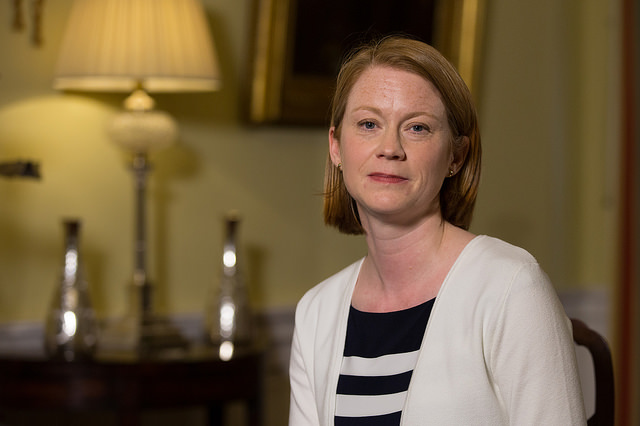Scottish Child Payment could support up to 194,000 children
The latest figures from the Scottish Fiscal Commission estimate that 194,000 children aged under six in Scotland will be eligible for the new Scottish Child Payment.

Shirley-Anne Somerville, social security secretary
This is an increase of 14% in eligible children since the Scottish Government’s forecast in June 2019, accounting for the increased Universal Credit caseload - one of the main qualifying benefits - due to COVID-19.
The forecast comes as legislation is laid to allow for the delivery of the benefit - which will give eligible families £10 a week per child under six.
The legislation details plans to open early for applications to manage anticipated high demand for Scottish Child Payment.
Taking applications from November will allow Social Security Scotland to start processing the expected thousands of forms before the official opening date in mid-February. The official opening date is when entitlement to the Scottish Child Payment will begin.
People will get a letter following the official opening date advising them of the outcome of their application and, if successful, when to expect a payment.
For those that applied ahead of the official opening date, their payment will be calculated from when entitlement begins. If they apply after this date, it will be calculated from the date of their application.
The first payments will start from the end of February 2021.
The Scottish Child Payment together with Best Start Grant and Best Start Foods will provide over £5,200 of financial support for families by the time their first child turns six. For second and subsequent children this will provide over £4,900.
Shirley-Anne Somerville, social security secretary, said: “I am very proud that our commitment to tackling child poverty means we are introducing this brand new benefit. We are the only part of the UK taking such action and making sure low income families have additional financial support.
“This support is needed more than ever. The economic impact of COVID-19 has had a significant impact on families. In response to this, we’ve already introduced a number of measures – including further investment in the Parental Employability Support Fund, a doubling of the Scottish Welfare Fund, an increase in Discretionary Housing Payments and over £110 million to support people with food insecurity during the pandemic.
“We’ve prioritised our efforts and resource to deliver Scottish Child Payment as soon as we could practically do so. Despite the significant impact of COVID-19 on the Scottish Government and the people and partners we are working closely with, the introduction of the Scottish Child Payment has only been delayed by two months.”
She added: “We’ve continued engaging with the people who will apply for this payment to get their input into the design. We’ve managed to bring in and train new staff to help us manage the exceptional demand that we anticipate. We’ve done all of this with staff working from home.
“I am pleased that we will be taking applications within eighteen months of announcing this new benefit. The Scottish Child Payment will be a game changer for families across Scotland. Significantly more families are now relying on benefits – some perhaps for the first time – and this will make a real difference.”
Satwat Rehman, CEO of One Parent Families Scotland, commented: “The new Scottish Child Payment from the Scottish Government will make a world of difference to low-income families, many of whom were struggling to cover living costs even before the pandemic.
“39% of children in single parent families were living in poverty before COVID-19, and the effect of the virus and resulting lockdown has only added to the pressure for single parents who are balancing the responsibility of caring for their children and bringing in an income alone.
“This is a payment that families are in dire need of and when this additional £10 per week per child becomes available in February it will be a lifeline for many such families. It will help reduce financial pressures and demonstrates the potential of social security to make a positive difference and reflect our society’s shared values of compassion and fairness.”








